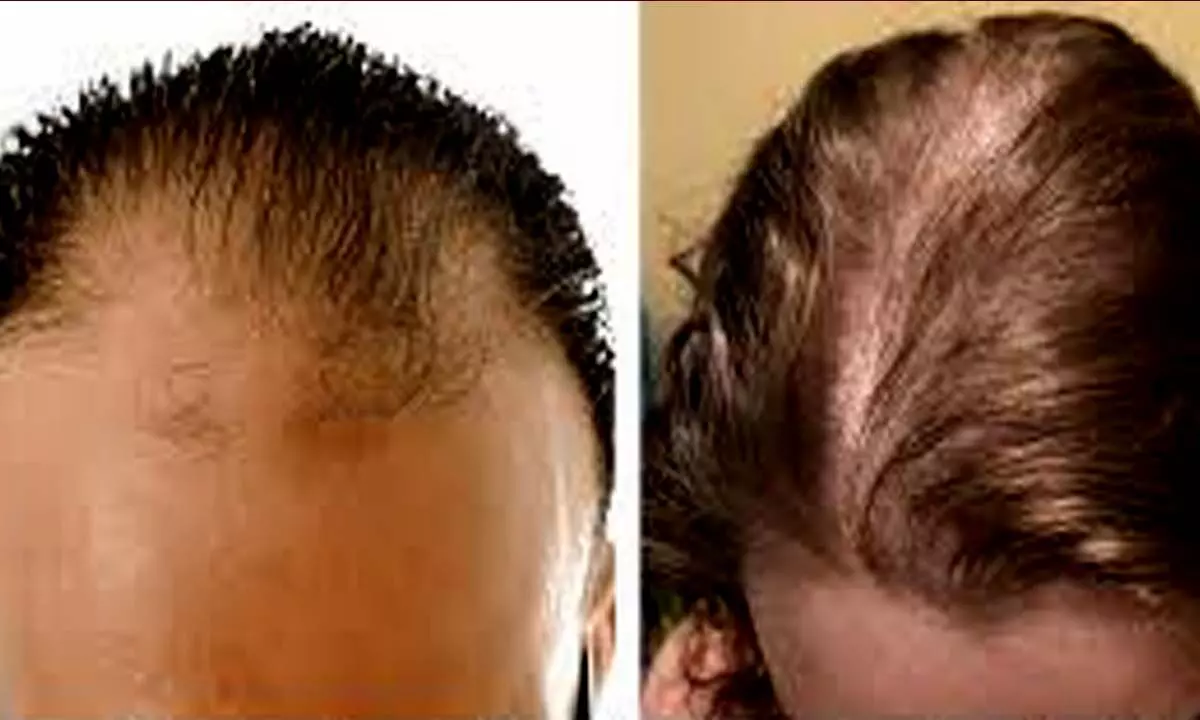Can Hard Water Cause Hair Loss?

Hair loss is a common concern for many individuals, and people often explore various factors that could contribute to this issue.
Hair loss is a common concern for many individuals, and people often explore various factors that could contribute to this issue. One factor that has been suggested to play a role in hair loss is the quality of water used for washing and bathing. Hard water, characterised by its high mineral content, has been implicated in several health and cosmetic issues. In this article, we will delve into the question: Can hard water cause hair loss?
Understanding Hard Water:
Hard water is water that contains a high concentration of minerals, primarily calcium and magnesium. These minerals accumulate in water as it passes through rock formations and underground deposits. While hard water is generally safe for consumption, its impact on hair and skin has been a subject of debate.
Effects of Hard Water on Hair:
1. Dryness and Frizz: Hard water can strip the hair of its natural oils, leaving it dry and more prone to frizz. This can result in a lack of moisture, making the hair more susceptible to damage and breakage.
2. Scalp Irritation: The minerals in hard water can build up on the scalp, leading to irritation and potentially causing dandruff. A dry and irritated scalp may contribute to hair loss, as the health of the hair is closely linked to the condition of the scalp.
3. Calcification of Hair Follicles: Over time, the minerals in hard water can accumulate on the hair shaft and around the hair follicles. This calcification can hinder normal hair growth, potentially leading to thinner and weaker strands.
Research on the Link Between Hard Water and Hair Loss:
While there is anecdotal evidence suggesting a connection between hard water and hair loss, scientific studies on this specific relationship are limited. Research in this area is complicated by various factors, including individual susceptibility to hair issues, genetic predispositions, and environmental factors.
Preventive Measures:
1. Water Softeners: Installing a water softener is one of the most effective ways to combat the effects of hard water. Water softeners work by removing or reducing the mineral content, providing a gentler water supply for hair and skin.
2. Clarifying Shampoos: Using clarifying shampoos can help remove mineral buildup from the hair. These shampoos are designed to deep-clean and eliminate residues that may affect hair health.
3. Vinegar Rinse: Some individuals use vinegar rinses to counteract the effects of hard water. A diluted vinegar solution can help remove mineral deposits and restore the hair's natural pH balance.
While there is some evidence to suggest that hard water may have adverse effects on hair health, the direct link between hard water and hair loss remains inconclusive. Individual experiences with hard water can vary, and genetic factors, diet, and overall hair care practices also play significant roles.
If you are concerned about the quality of your water and its potential impact on your hair, consider consulting with a dermatologist or trichologist for personalised advice. Additionally, adopting preventive measures such as water softeners and specialised hair care products may help mitigate any potential negative effects of hard water on your hair.








